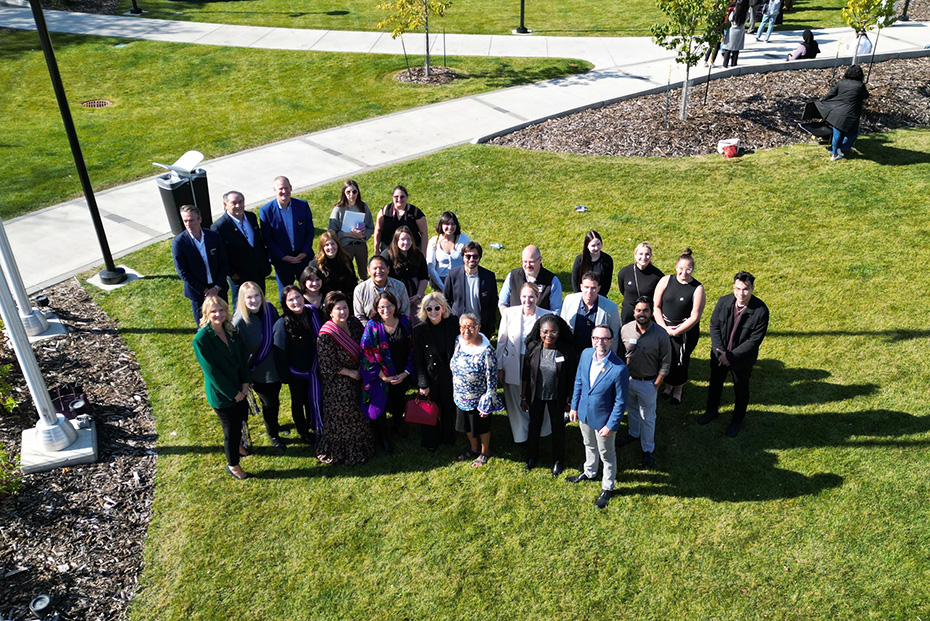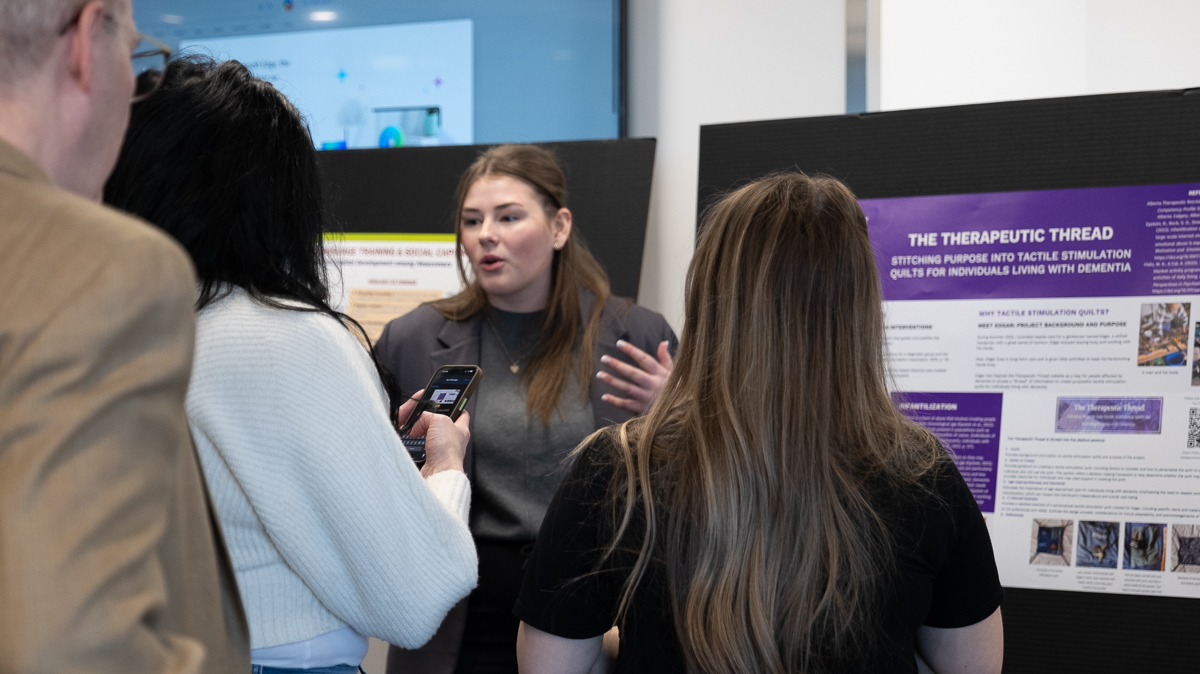Gifts from the land
June 28, 2023
“To appreciate Indigenous culture, one must start with an understanding of our relationship to land. This means more than human relations – the sky, water, soil, plants, animals. We are not separate from the land, we are part of land. Through oral tradition, our Creation stories reveal the foundational principles which influence the way in which we all relate to, live, and walk on and in this world together.”
Jeanien Bell is passionate about land-based learning and the eye-opening gifts it can provide. Bell is the Program Chair of NorQuest College’s Indigenous Studies program and recently led in the organization of a five day land-based learning experience at Moonlight Bay on Wabamun Lake.
For the diverse and unique First Nation, Métis and Inuit communities, relationships with the land continue to be to be the first and greatest source of all knowledge. Land-based learning is facilitated by instructors under the guidance and direction of Elders, Knowledge Keepers, cultural advisors, and members of Indigenous communities. Land-based learning is broad and diverse in its delivery, focusing on participatory, experiential learning, the intergenerational transfer of knowledge centered in community and outdoor experiences. It is a way of rendering curriculum less abstract, increasingly engaging, and relevant to students’ lives.
“The land is the first classroom and greatest teacher,” says Bell. “The land is where one comes to understand. For our Indigenous Studies program, land is at the heart of our curriculum. Land is relative, land is text, land is pedagogy.”
As part of NorQuest’s Indigenous Studies diploma program, the intensive and immersive experience provided a unique opportunity for NorQuest students, faculty, employees, and the community. Everyone gathered together to experience and witness firsthand how Indigenous knowledge is embedded within the land and revealed through relationships.
The week’s events allowed for hands-on engagement in traditions from the Indigenous communities across the province of Alberta including Cree, Blackfoot, Métis, and Inuit. Indigenous ceremonies, setting up a tipi, medicine walks, fishing rod and soapstone carving, Métis music and jigging were also part of the busy week.
Meals were researched and prepared by learners with locally sourced foods harvested and gathered by members of the Indigenous community. Dinner themes included gifts from land, animals, soil, plants, water, and sky. “Indigenous practice requires respectful use of every part of a plant or animal after its been taken,” explains Bell. “We honour its life and spirit, recognizing the sacrifice made to provide nourishment for our minds, bodies, hearts and spirits.” Preparing meat and fish, harvesting animal parts for future use as tools and artwork were but a few of the ways students nurtured their relationships to self, one another, and the land.
Bell stresses that both Indigenous and settler peoples can learn so much by reconnecting to the land. “It reminds us of our place within a holistic, interconnected web of relationships. Indigenous people see that the land is not a commodity or something to be exploited. The land is a relative, a living being, essential to our survival, not a resource for extraction.”
When asked what her favourite activity was, Bell laughs and says, “all of it!”
“The goal of the week was to bring us together into spaces where we could reflect – away from cell phones, daily work routines, and other distractions. We really immersed ourselves in the experience. Everything brought us closer together to come to a better understanding our relationship to the land.”
“We disconnect to reconnect!”


